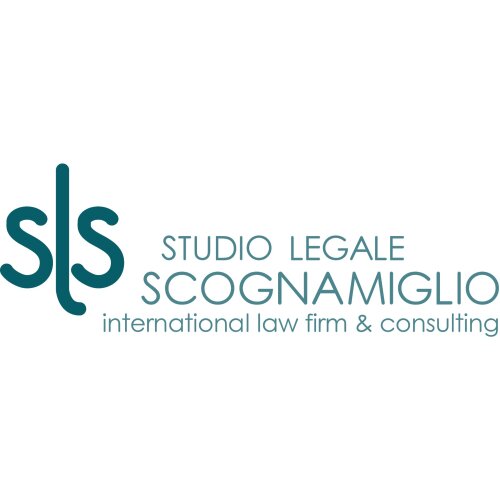Best Employer Lawyers in Naples
Share your needs with us, get contacted by law firms.
Free. Takes 2 min.
List of the best lawyers in Naples, Italy
About Employer Law in Naples, Italy:
Employer law in Naples, Italy encompasses the legal rights and obligations of employers and employees in the workplace. It governs matters such as employment contracts, wages, working conditions, health and safety regulations, and termination of employment. It is important for both employers and employees to be familiar with these laws to ensure compliance and to protect their rights.
Why You May Need a Lawyer:
There are various situations where seeking legal assistance in employer law may be necessary. Some common examples include:
1. Disputes between employers and employees regarding wages, working hours, or contract terms.
2. Cases of workplace harassment, discrimination, or wrongful termination.
3. Assistance with drafting or reviewing employment contracts to ensure legal compliance.
4. Guidance on navigating complex labor laws and regulations.
5. Representation in court or during mediation and negotiations.
Local Laws Overview:
Employer law in Naples, Italy is primarily governed by the Italian Labor Code, known as the "Codice del Lavoro." Some key aspects of local laws to be aware of include:
1. Employment Contracts: Employment contracts must be in writing and include essential terms such as job description, working hours, wages, and benefits.
2. Working Hours: The standard working week is 40 hours, and employees are generally entitled to rest breaks and a weekly day off.
3. Wages and Benefits: Italian law sets minimum wage requirements, and employees may be entitled to additional benefits such as vacation leave and sick leave.
4. Termination of Employment: Employers must adhere to specific procedures and grounds for terminating an employee. Notice periods and severance pay may apply.
5. Health and Safety: Employers have a duty to provide a safe and healthy working environment, including measures to prevent accidents and occupational diseases.
Frequently Asked Questions:
1. Can an employer terminate an employee without a valid reason?
No, Italian law requires employers to have valid reasons and follow proper procedures when terminating an employee. Unjustified terminations may lead to legal consequences.
2. What steps can employees take if they face workplace discrimination or harassment?
Employees should document incidents and seek legal advice to understand their options. They can file a complaint with the local labor authorities or pursue legal action through the courts.
3. Are there any limits on working hours?
Yes, the standard working week is 40 hours, and employees cannot exceed a maximum of 48 hours per week, including overtime.
4. What are the requirements for hiring foreign workers?
Employers hiring foreign workers must comply with immigration laws and obtain the necessary permits. They must also ensure equal treatment and fair working conditions for all employees.
5. Can employees refuse to work in unsafe conditions?
Yes, employees have the right to refuse work if they reasonably believe it would expose them to serious and imminent danger. However, they should inform their employer and follow proper procedures.
Additional Resources:
For further assistance and resources related to employer law in Naples, Italy, you may find the following organizations helpful:
- Ministry of Labor and Social Policies (Ministero del Lavoro e delle Politiche Sociali)
- Italian Bar Associations (Ordine degli Avvocati)
- Naples Chamber of Commerce (Camera di Commercio di Napoli)
These organizations can provide guidance, legal information, and connect you with experienced lawyers specialized in employer law.
Next Steps:
If you need legal assistance in employer law matters in Naples, Italy, it is recommended to:
1. Collect all relevant documents and evidence related to your case.
2. Research and reach out to reputable law firms or lawyers specialized in employer law.
3. Schedule a consultation to discuss your situation and receive personalized advice.
4. During the consultation, ask about their experience, fees, and potential outcomes.
5. Based on the consultation, choose the lawyer or law firm that best suits your needs and proceed with legal guidance.
Lawzana helps you find the best lawyers and law firms in Naples through a curated and pre-screened list of qualified legal professionals. Our platform offers rankings and detailed profiles of attorneys and law firms, allowing you to compare based on practice areas, including Employer, experience, and client feedback.
Each profile includes a description of the firm's areas of practice, client reviews, team members and partners, year of establishment, spoken languages, office locations, contact information, social media presence, and any published articles or resources. Most firms on our platform speak English and are experienced in both local and international legal matters.
Get a quote from top-rated law firms in Naples, Italy — quickly, securely, and without unnecessary hassle.
Disclaimer:
The information provided on this page is for general informational purposes only and does not constitute legal advice. While we strive to ensure the accuracy and relevance of the content, legal information may change over time, and interpretations of the law can vary. You should always consult with a qualified legal professional for advice specific to your situation.
We disclaim all liability for actions taken or not taken based on the content of this page. If you believe any information is incorrect or outdated, please contact us, and we will review and update it where appropriate.









